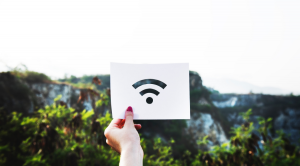What is Private Browsing on iPhone and iPad?
Private Browsing mode on iPhone and iPad is a useful tool to help you protect your privacy while using the internet. This feature prevents your device from saving cookies, browsing history, or autofill data. In other words, any websites you visit won't be recorded, and you won't be exposed to personalized ads based on your online behavior. It's a great way to experience the internet more anonymously.
This mode is especially useful when you share your device with family or friends. It allows you to surf the web without leaving a trace, ensuring your privacy is maintained.
Are private browsing and incognito mode the same?
Both modes prevent your device from saving browsing history, cookies, and website data, providing a higher level of anonymity. However, they have some differences.
Private browsing on iOS focuses only on protecting local data, while Google's incognito mode can be linked to your account if you're signed in. This means that while your browsing activity on the device isn't saved, some data may still be collected by Google. Meanwhile, Apple's private browsing mode ensures that your activity isn't linked to any account, providing maximum privacy.
Pros and cons of using private browsing mode on iPhone and other Apple devices
Pros of private browsing mode
Personal activity security: This mode prevents the device from saving browsing history, cookies, and autofill data, ensuring privacy when you share the device with others.
Support multiple account logins: You can use multiple accounts on the same service without confusion, such as opening one Gmail account in a regular window and another account in private mode.
Convenient for tracking prices: Avoid the situation where booking sites use cookies to increase prices based on search frequency, especially useful when hunting for airfare or booking hotels.
Cons of private browsing mode
No data sync: Tabs and browsing history will not be synced via iCloud, causing inconvenience when you want to continue from another device such as iPhone or iPad.
Impact on website performance: Some websites may load slowly or perform inconsistently when using private browsing mode, which can degrade the user experience.
Limited extension support: Most browser extensions, such as ad blockers or productivity tools, typically don't work in this mode.
Is private browsing mode really private?
Private browsing mode helps hide your activity from others who have access to your device, but it has certain limitations. While your browsing history, cookies, and autofill data aren't stored locally, that doesn't mean your online activity is completely anonymous. Websites, advertisers, and other third parties can still track you, and your ISP can still monitor what you do online, even when using Safari's private mode.
Your ISP or network administrator can also track your activity, such as when you're using public Wi-Fi. Private mode primarily prevents your device from storing data, not preventing other parties from recording your browsing history.
If you want to increase your privacy online, here are some ways to better protect yourself:
Switch to a private browser
Consider using a browser like DuckDuckGo, which blocks trackers and doesn't store your search history or personal data. DuckDuckGo prevents advertisers and third parties from building a profile of you. You can download the app or set it as your default search engine to get started.
Use a privacy extension on Safari
While Safari's private mode prevents local data storage, it doesn't prevent online trackers. Installing extensions like AdBlock Plus or Privacy Badger will help block ads and trackers, reducing the amount of information websites collect about you.
Use a VPN to secure your connection
A VPN is a more robust solution that encrypts your entire internet connection, making it harder for your ISP, network administrator, and other third parties to track your online activity. VPNs also mask your real IP address, revealing only the IP address of the VPN server. RICE VPN, with its no-logs policy, is a solid choice, offering a 30-day money-back guarantee so you can try it risk-free.
Can your iPhone's private browsing mode be tracked?
Yes, your online activity can still be tracked even when using private browsing mode on your iPhone. While this mode prevents your device from saving your browsing history, Wi-Fi network administrators and internet service providers (ISPs) can still monitor what you do online. If you log into websites, those sites and their advertisers can still associate your activity with your logged-in account, regardless of whether you're using private browsing mode.
VPNs can help increase security, but they have their limits. While a VPN encrypts your internet connection and masks your IP address, logging into an online account still reveals your identity to that website. To maintain the greatest level of anonymity, consider logging out of your accounts before browsing with a VPN or in private mode. Private browsing mode deletes cookies and browsing history after you close the window, but it does not hide all activity. DNS requests—the process of translating a website's domain name into an IP address—may still be logged. This allows your online activity to be tracked through DNS logs.










